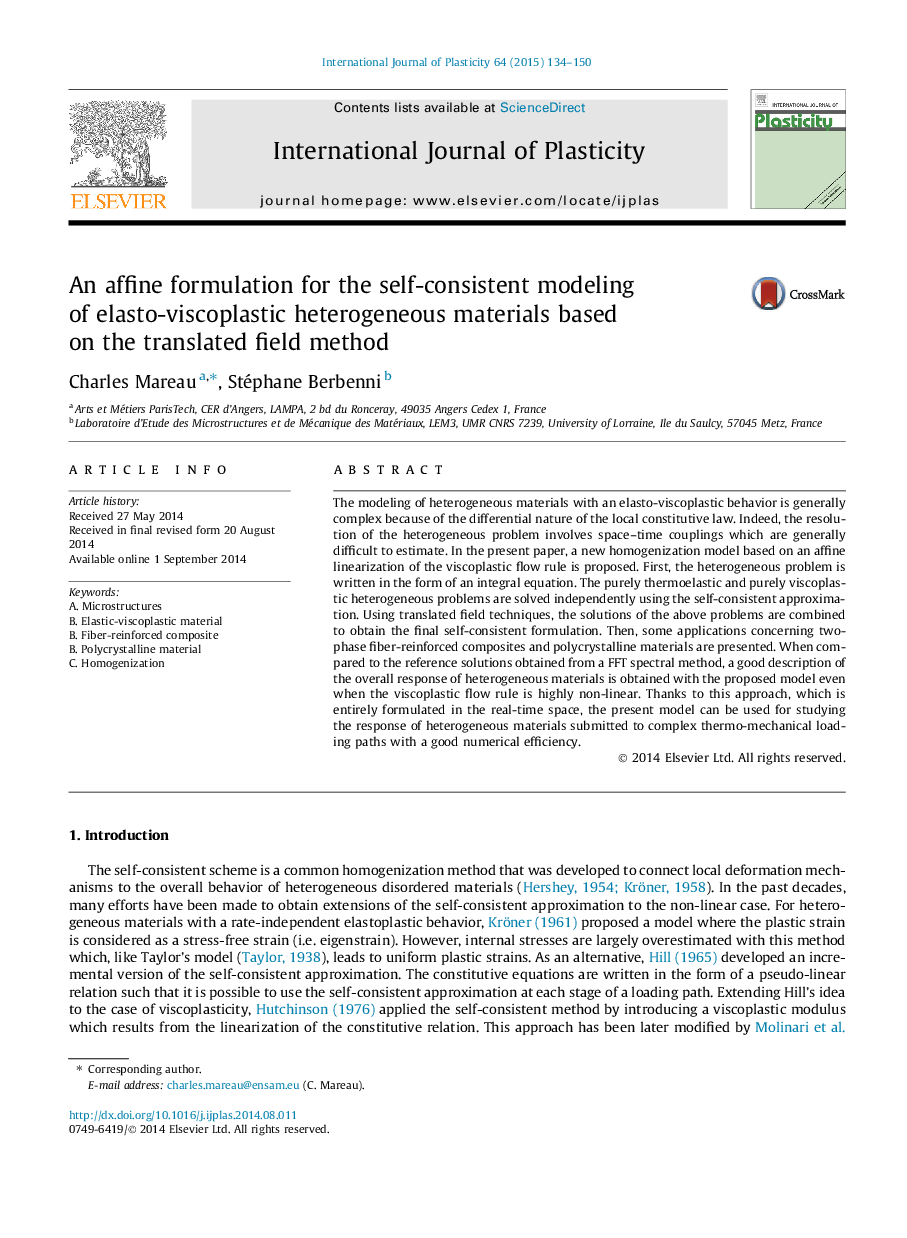| Article ID | Journal | Published Year | Pages | File Type |
|---|---|---|---|---|
| 786451 | International Journal of Plasticity | 2015 | 17 Pages |
•A self-consistent model for elasto-viscoplastic heterogeneous solids is proposed.•The model is based on an affine linearization of the viscoplastic flow rule.•Applications concerning fiber-reinforced composites and polycrystals are presented.•The results are compared to reference solutions calculated from a FFT method.•When compared to FFT solutions, a good description of the behavior is obtained.
The modeling of heterogeneous materials with an elasto-viscoplastic behavior is generally complex because of the differential nature of the local constitutive law. Indeed, the resolution of the heterogeneous problem involves space–time couplings which are generally difficult to estimate. In the present paper, a new homogenization model based on an affine linearization of the viscoplastic flow rule is proposed. First, the heterogeneous problem is written in the form of an integral equation. The purely thermoelastic and purely viscoplastic heterogeneous problems are solved independently using the self-consistent approximation. Using translated field techniques, the solutions of the above problems are combined to obtain the final self-consistent formulation. Then, some applications concerning two-phase fiber-reinforced composites and polycrystalline materials are presented. When compared to the reference solutions obtained from a FFT spectral method, a good description of the overall response of heterogeneous materials is obtained with the proposed model even when the viscoplastic flow rule is highly non-linear. Thanks to this approach, which is entirely formulated in the real-time space, the present model can be used for studying the response of heterogeneous materials submitted to complex thermo-mechanical loading paths with a good numerical efficiency.
